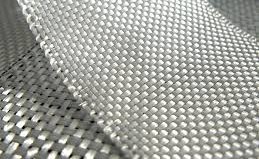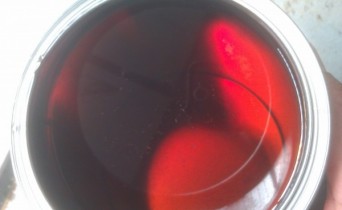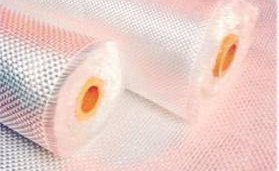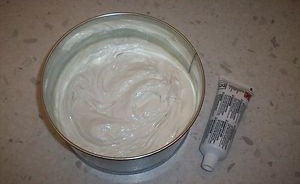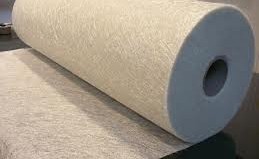The synthetic resins represent the matrix for composite materials which are combined as reinforcing with fiber or glass mat.
The resins used in fiberglass process (GRP) are thermosetting polymers; depending on the chemical composition and from type of bonds that characterize their molecules, they are divided into: Unsaturated Polyester Resin, Vinyl ester resin and Epoxy resin.
Polyester Resin
The polyester resins are esters formed from saturated and unsaturated dibasic acids and dihydric alcohols dissolved in a polymerizing monomer (mostly styrene). The hardening (or curing) of the resins is a chemical reaction that takes place through the addition of organic peroxides. Depending on their chemical composition polyester resins are divided into ortophtalic, isophthalic, Bisphenolic. These resins have good mechanical properties, good impact resistance and good resistance to the aggression of chemical agents (especially the bisphenolic). For these characteristics, unsaturated polyester resins are used in various sectors of industry, from automotive to boating. The unsaturated polyester resins are widely used in our company both in RTM processes both in manual stratification processes for all kinds of use.
Vinil ester Resin
The vinyl ester resins are, for mechanical and physical characteristics, an adequate alternative to polyester or epoxy resins. Based on their molecular composition we can divide these resins in two group: Epoxy-based vinyl ester resin and polyurethane-based vinyl ester resin. They can be used in different processes of composites materials such as hand layup, the RTM, casting, pultrusion and infusion. They join excellent mechanical properties and chemical resistance for excellent resistance to water absorption and heat distortion (depending on the characteristics and the producer the heat resistance can range from 90 ° to 150 °). For these good qualities and for the relatively low cost, these resins are used in the composite material world for the production of heat-resistant molds, various kinds of tanks, swimming pools, boats and fiberglass part which require high characteristics of strength.
Self-extinguishing Resins
The self-extinguishing polyester resins are born from the need, due to increasingly stringent regulations, to have special flame resistant fiberglass and with low emissions fumes from various industrial sectors. The self-extinguishing and flame retardants resins are usually used in transport (planes, trains, ships, subways, buses) and in the field of first aid equipment vehicles (fire brigade, Red Cross, police, etc …). These resins can be pure or loaded (almost always with alumina trihydrate) and preaccelerate. The use of aggregate alumina gives the resin a higher flame resistance and this is explicitly required in areas such as rail where you search for the maximum fire resistance of the composite material. The self-extinguishing resins can be used for fiberglass laminates in manual stratification or for composites in RTM.
In our company the self-extinguishing resins are widely used for a wide range of composite products ranging from special vehicles for first aid in the crankcase and profiles for the railway sector. Thanks to our experience in the use of these resins we are able to provide appropriate assistance to the customer in terms of both the composite part thickness both in terms of the type of resin to be used to the respect of regulations in every sector of industry.
Epoxy Resins
Epoxy resins are thermosetting polymers containing, in the liquid precursor, with epoxy ring to three atoms. The epoxy resins are diluted with styrene to lower the viscosity and thus increase the impregnation of reinforcing fibers. The main use of epoxy resins is in the field of internal or external coatings in composite material, because these resins combine properties of flexibility, adhesion and chemical resistance virtually matchless.
Epoxy resins can be laminated through manual stratification and allow you to create articles in reinforced material with carbon glass fiber or Kevlar fiber, which will have better mechanical, electrical and chemical properties than unsaturated polyesters, for instance.
In our company the epoxy resins are used for the manufacture of parts made in fiberglass for the marine industry, the automotive and motorcycle industry and the defense sector for their excellent mechanical and physical properties especially in union with carbon reinforcing fibers, Kevlar or carbon Kevlar.

